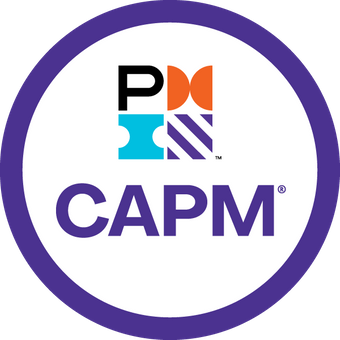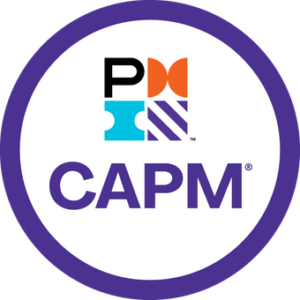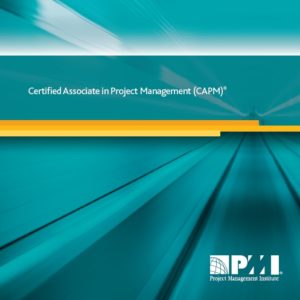Description
Program Overview:
The CAPM Exam Preparation Mentoring Program is designed to provide individuals with the knowledge and skills needed to pass the Certified Associate in Project Management (CAPM)® exam. The program covers essential project management concepts, methodologies, frameworks, and principles as outlined in the CAPM Examination Content Outline (ECO).
Program Structure:
- Introduction to CAPM Certification:
- Day 1:
- Explanation of the CAPM ECO and its domains.

- Understanding the role of an entry- and associate-level project manager.
- Get acquainted with a basic list of the literature and other learning materials.
- Recommendations, advice, preparation life-hacks.
- Explanation of the CAPM ECO and its domains.
- Day 1:
- Domain 1: Project Management Fundamentals and Core Concepts (36%):
- Day 2: Introduction and Project Basics
- Introduction to project management.
- Differentiating between project, program, and portfolio.
- Understanding project vs. operations.
- Exploring project life cycles and processes.
- Day 3: Approaches and Project Planning
- Comparing predictive and adaptive approaches.
- Differentiating between issues, risks, assumptions, and constraints.
- Applying project management code of ethics to scenarios.
- Recognizing project’s role as a vehicle for change.
- Day 4: Planning, Roles, Responsibilities, and Execution
- Importance of cost, quality, risk, schedule, etc. in project planning.
- Distinguishing project management plan vs. product management plan.
- Understanding milestones and task durations.
- Determining resources required for a project.
- Understanding of common problem-solving tools and techniques.
- Day 2: Introduction and Project Basics
- Domain 2: Predictive, Plan-Based Methodologies (17%):
- Day 5: Understanding Predictive Approaches
- Explaining the context for using a predictive, plan-based approach.
- Assessing organizational suitability for predictive approaches.
- Identifying activities within predictive processes.
- Providing examples of activities within predictive processes.
- Day 6: Project Planning and Control in Predictive Environments
- Applying critical path methods for project schedule.
- Calculating schedule variance.
- Understanding work breakdown structures (WBS) and work packages.
- Applying quality and integration management plans in predictive projects.
- Documenting of project controls for predictive, plan-based projects.
- Day 5: Understanding Predictive Approaches
- Domain 3: Agile Frameworks/Methodologies (20%):
- Day 7: Understanding Adaptive Approaches
- Explaining the context for using an adaptive approach.
- Comparing pros and cons of adaptive vs. predictive projects.
- Assessing organizational suitability for adaptive approaches.
- Identifying process assets and environmental factors favoring adaptability.
- Day 8: Agile Planning and Execution
- Planning project iterations and understanding logical units.
- Translating WBS to adaptive iterations, determining scope inputs.
- Highlighting the significance of adaptive project tracking.
- Documenting of project controls for an adaptive project.
- Exploring artifacts and components of adaptive plans.
- Day 7: Understanding Adaptive Approaches
- Domain 4: Business Analysis Frameworks (27%):
- Day 9: Business Analysis Roles and Communication
- Understanding various stakeholder roles and responsibilities.
- Recognizing the significance of stakeholder communication.
- Identifying appropriate communication channels/tools.
- Exploring the importance of communication for business analysts.
- Day 10: Requirements Gathering and Influence of Methodologies
- Matching tools to requirement scenarios (user stories, use cases, etc.).
- Selecting the right approach for requirements gathering.
- Grasping the concept of product roadmaps and their application.
- Analyzing how project methodologies impact business analysis processes.
- Day 9: Business Analysis Roles and Communication
Study and Preparation Phases:
- Preliminary Study:
- Recommended reading of PMBOK® Guide – Seventh Edition and other references.
- Initial knowledge assessment through a preliminary test.
- Study and Review:
- In-depth study of each domain’s concepts and principles.
- Participating in online tests on PMBOK Principles and Domains, as well as on CAPM Domains and Tasks.
- Identifying knowledge gaps through self-assessment.
- Focused Study:
- Additional materials and resources provided to address identified knowledge gaps.
- Concentrated study of complex topics and questions.
- Mock Exam and Final Review:
- Taking the online CAPM Mock Exam to simulate the actual CAPM exam.
- Reviewing and analyzing performance in the mock exam.
- Final revision of key concepts and exam strategies.
CAPM Credential Process:
- CAPM Application and Exam Process:
- Guidance on registering on the PMI website.
- Assistance in applying training hours.
- Filling out the Application List and payment process.
- Scheduling and Taking the Exam:
- Information on scheduling the CAPM exam through Pearson VUE.
- Tips for exam preparation and performance.
Program Cost and Duration:
- The cost of preparation covers program access, materials, testing, and support.
- The recommended duration is 3 months, with 12 one-hour lessons.
- Subsequent months involve consultation and support for candidates hesitating after the initial program.
| Cost of preparation | Duration of preparation | Subsequent months |
|---|---|---|
| US$500 | 2,5 months (10 lessons 1 hour each) |
US$300/month (4 lessons 1 hour each) |
Legend:
- The cost of preparation is a fee for connecting to the system, preliminary assessment of the knowledge, the development of an individual program, the execution of the individual program, assistance with Application, for providing training materials and information, regular testing and assessment of the knowledge, assistance with questions.
- Duration of preparation is a recommended duration of preparation (from-to).
- Subsequent months are the payments for consultations after the planned time (in case of your hesitation).
Program Benefits:
- Comprehensive coverage of CAPM ECO domains and tasks.
- In-depth understanding of project management fundamentals, methodologies, and frameworks.
- Practice with online tests and mock exams for effective exam readiness.
- Guidance through the CAPM application and exam process.
- Support in addressing knowledge gaps and complex topics.
Note: This is a general outline, and you can customize it further based on the specific needs and preferences of your CAPM Exam Preparation Program. Additionally, you can integrate study materials, resources, and interactive learning activities to enhance the effectiveness of the program.



